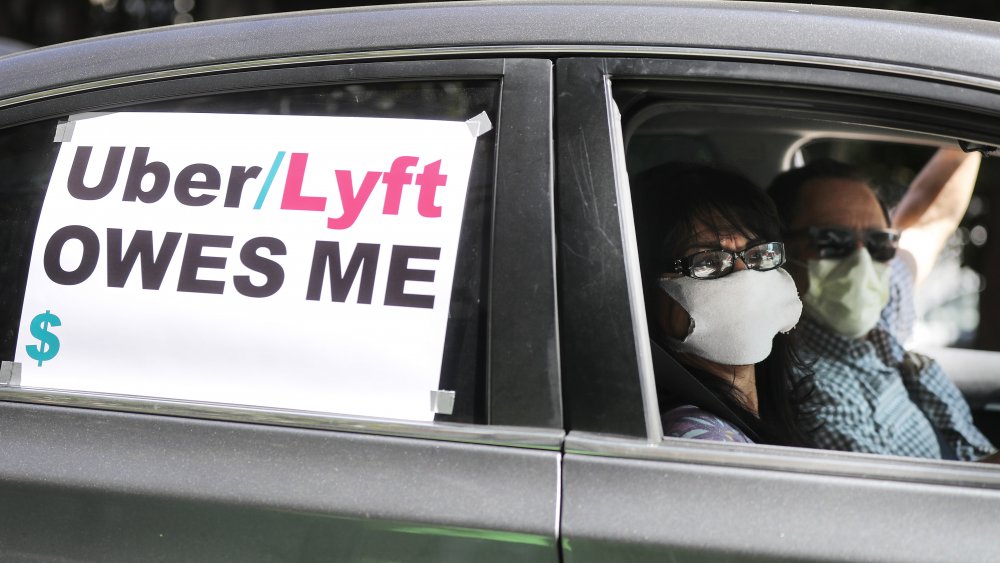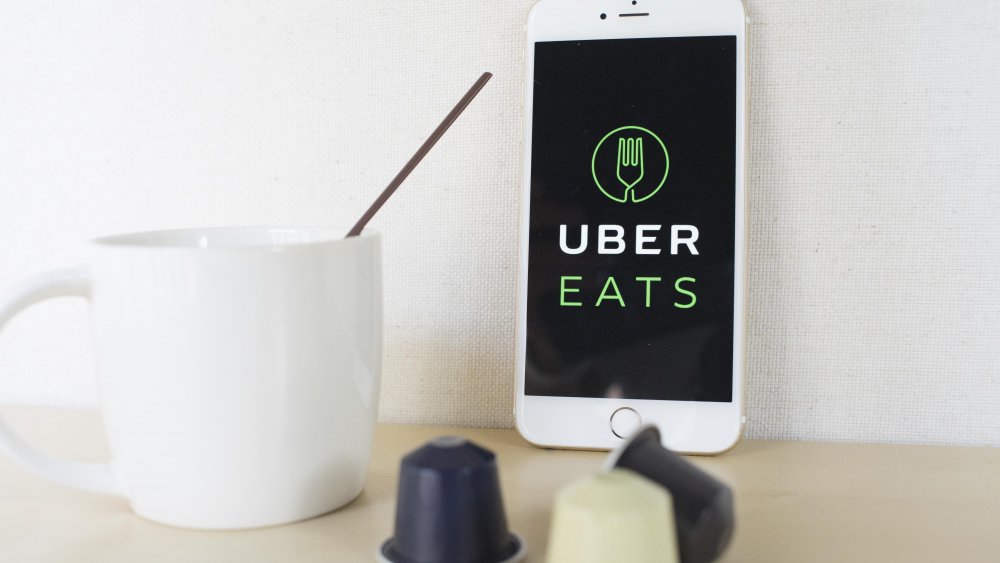Why Workers Are Divided On The Passing Of California's Prop 22
Do big rideshare and delivery companies such as Uber, Lyft, and Instacart exploit their drivers by treating them as independent contractors without any benefits or employee protections? Or, as the Uber commercial says, do they provide people with a highly flexible and kinda fun "side hustle" to make a few extra bucks? Lawmakers and judges in California had clearly landed on the "exploit" side of the debate, and a new state law required the big tech companies to provide everything to their drivers any other full-fledged employee would get: a minimum wage, sick leave, and health and unemployment insurance (via The Washington Post).
Then Uber, DoorDash, and the rest fought back. They bankrolled Proposition 22, which appeared on the California ballot alongside Donald Trump, Joe Biden, and everything else that was up for a vote in that state on November 3rd. The proposition was written so that the new law wouldn't apply to the big rideshare and delivery companies, so they could still hire workers as independent contractors. The proposition was also written to help these workers out with some benefits, including a paycheck equal to 120 percent of minimum wage while actively driving, a health insurance subsidy if you drive at least 15 hours each week, and reimbursement for miles driven (via Los Angeles Times). In a victory for Uber and the rest, Prop 22 passed.
Rideshare and delivery driver jobs can be flexible, but don't provide many benefits
Some rideshare drivers didn't see the proposition as a good compromise that would be beneficial for both the tech companies and their workers. The mileage reimbursement is about half what the IRS allows people to claim when driving on the job and the guaranteed wage isn't paid in between rides, so the work frequently actually ends up paying sub-minimum wage. The benefits that come if you're injured on the job are also not up to the same standard as what full employees get (via The Mercury News).
The Los Angeles Times' editorial board endorsed a "no" vote on Prop 22, but acknowledged that the measure preserves something workers really like — the flexibility to work whenever and wherever they want. And for people who like the option of making a few extra bucks driving for DoorDash, Instacart, or Lyft on the side, those companies had said they would have to let many drivers go if Prop 22 failed, and assign the ones they retained to specific shifts in specific areas. They also alleged the cost of a rideshare in the suburbs and rural areas would go way up. As economist Damian Park argued in Berkeleyside, Prop 22 is good for workers because about 100,000 of them would no longer have jobs if it failed. As it is, Uber and the rest can continue to do business as usual in California, and drivers will have more benefits, just not nearly what true employees get in the state.

